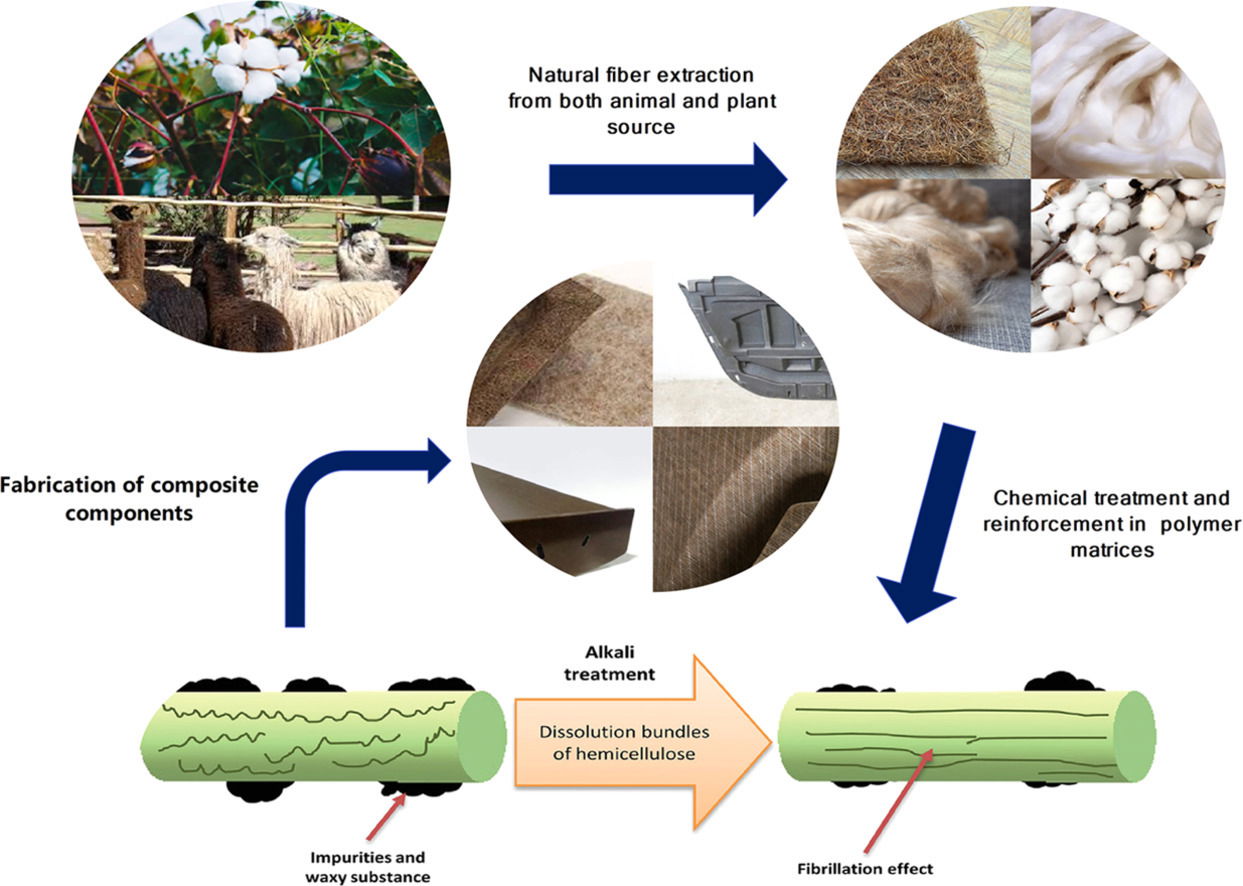Harnessing Nature for High-Performance Materials: Our Latest Review Explores the Future of Natural Fiber Composites

In a world increasingly driven by sustainability, researchers at the Bioresource Valorization Laboratory are helping pave the way for the next generation of eco-friendly materials.
Our recently published review offers a comprehensive look into the exciting and rapidly growing field of Natural Fiber Reinforced Polymer Composites (NFRPCs)—materials that are not only lightweight and cost-effective but also kinder to the environment.Natural fiber composites, made from renewable plant fibers such as flax, hemp, and ramie, are emerging as viable alternatives to traditional synthetic composites made from glass and carbon fibers.
With excellent mechanical and thermal properties, and a significantly lower environmental footprint, these materials are finding applications in industries ranging from automotive and aerospace to construction and defense. Think body armor, car interior panels, aircraft body parts, and even household fittings—all crafted from sustainable sources. The review delves into the various pre-treatment methods—chemical, mechanical, and thermal—used to enhance fiber compatibility with polymer matrices. It also discusses modern manufacturing techniques and addresses a critical challenge: the hydrophilic nature of plant fibers, which hinders strong bonding with plastics.
Promising strategies to overcome this include the use of nano-reinforcements like graphene and carbon nanotubes, as well as eco-friendly polymer coatings such as polydopamine and polypyrrole.Crucially, this work emphasizes the need for deeper understanding at the nanoscale level to improve interfacial adhesion and mechanical performance.
Future research directions outlined in the review advocate for innovations in surface modification and the development of new dispersion aids to optimize composite strength while preserving the fibers’ natural integrity.
This work reflects our lab’s commitment to advancing sustainable materials science and promoting bio-based alternatives that can reduce dependence on fossil-based resources. As the world turns to greener solutions, our findings highlight the immense potential of plant-based composites in shaping a cleaner, more sustainable industrial future.
The work was published in Elsevier's Applied Materials Today (IF 6.9; CS 12.1)
Read the full article here: https://www.sciencedirect.com/science/article/pii/S235294072500085X
For more updates on our research and innovations in bioresource valorization, stay tuned to our website and follow us on social media.